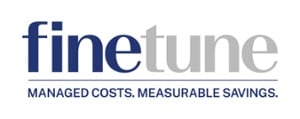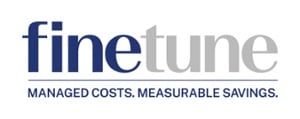Maximizing Savings Opportunities and Procurement's Strategic Value for CPOs
Saving money is not always about pinching pennies: advanced and data-driven insights enable you to identify real cost-saving opportunities, negotiate...

Are we living in a reactive state?
English poet William Wordsworth once wrote that “Life is divided into three terms – that which was, which is, and which will be. Let us learn from the past to profit by the present, and from the present, to live better in the future.”
The past year has seen much change and upheaval, causing us all to reassess many things in our own lives and in business.
So, the question now is: What lessons have we learned, and what new, experiential knowledge will we arm ourselves with as we face the future? Specifically, what lessons did we learn from this pandemic, the recession, and all the things that came before? Because everything builds upon the foundation that’s already been laid.
One thing we have seen clearly throughout history, and during this pandemic particularly, is that every time there is a disruptive event, many enterprises immediately go into “buying mode.” These events present a clear need, which naturally converts into a sense of urgency–sparking the buying process like lightning.
Globally, many have also learned (the hard way) that you can’t only buy your way out of what you can’t see ahead: The reactionary response is simply too little too late on most levels. Here is where predictive risk assessment, and more importantly, financial health transparency, come into play. So, what does that look like, exactly? Financial health is foundational to all other risk areas, and is more than just a set of tools—more than just a score—and combines actionable information, cross-team collaboration, and stronger relationships with business partners.
The world’s supply chains are more interdependent than ever before. Strong relationships are essential—and they’re heavily dependent on trust. But how do you establish and maintain trust? Put simply: lasting trust comes from understanding the decisions (internally and externally) that your counterparties, vendors, and suppliers are making.
These decisions (big and small) are reflected in a company’s financial statements. They are objective numbers—via profit and loss, balance sheets, and cash flow positions. And they shine an important light on how that company is operating, how they are levered, their strengths and weaknesses, and how those strengths and weaknesses are trending.
Trust also comes from sharing open dialogue based in an actionable, objective, and data-based language to view all companies evenly across your portfolio—and in that dialogue—to have the right conversations for long-term, mutual growth. What are other exogenous factors impacting performance? Will they be able to help you meet demand forecasts? Will they be adversely affected by payment term adjustments? What are their aspirations and goals—as a business? When you have these conversations and understand your business partners better, you can build meaningful trust and forge resilient working relationships that can withstand, and even thrive, in the face of future disruptions.
We know that this pandemic continues to impact companies of all sizes, regardless of industry and geography. (And its impact isn’t affecting businesses equally.) But even after the worst of the current storm has passed, we must not let it become just another blip in the history of global commerce.
Instead, we need to actively show that we have learned these lessons mentioned above by having our businesses implement modern processes and analytics into their risk management programs in preparation for whatever comes next. Businesses need to pivot from a reactive state—and focus on predictive analytics through stronger collaboration; staying ahead of what comes next versus having to scramble in a hectic attempt to reinvent the wheel after every major disruption. And there will be more disruptions.
By having accurate, advanced, and actionable information from the companies on which we depend, our businesses can mitigate those events before they break the chain, before we lose critical partners and suppliers, and before we lose competitive or operational footing. Weathering this storm and the next requires a new, predictive state. One that begins with financial health transparency.
To build out your company’s predictive state, request a demo with RapidRatings

The Financial Health Rating (FHR®) provides forward-looking & actionable insight into the financial stability of third-party vendors, suppliers & counterparties.

Saving money is not always about pinching pennies: advanced and data-driven insights enable you to identify real cost-saving opportunities, negotiate...

The topic of our recent roundtable discussion with a dozen Procurement Foundry community members—exploring potential flaws in procurement incentive...

Every 30 days or so, I get the same alert on my phone—“Your electricity bill is available for viewing.” I take a quick look, make sure nothing seems...